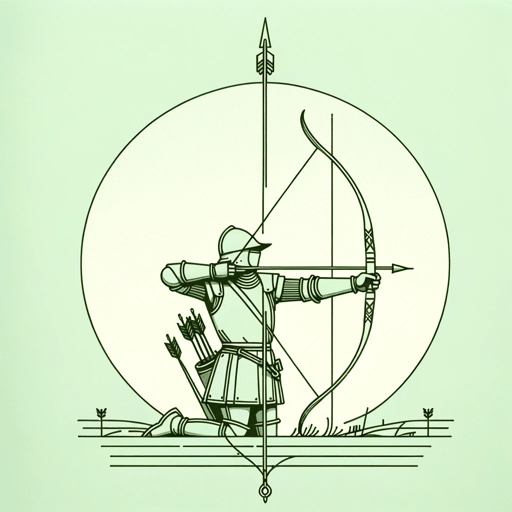65 pages • 2 hours read
Jean FroissartChronicles
Nonfiction | Book | Adult | Published in 1400A modern alternative to SparkNotes and CliffsNotes, SuperSummary offers high-quality Study Guides with detailed chapter summaries and analysis of major themes, characters, and more.
Summary
Background
Introduction and Prologue
Book 1, Chapters 1-3
Book 1, Chapters 4-6
Book 1, Chapter 7
Book 1, Chapter 8-10
Book 1, Chapters 11-12
Book 1, Chapters 13-15
Book 1, Chapters 16-17
Book 2, Chapters 18-19
Book 2, Chapters 20-22
Book 3, Chapters 23-28
Book 3, Chapters 29-31
Book 4, Chapters 32-40
Book 4, Chapter 41
Key Figures
Themes
Index of Terms
Important Quotes
Essay Topics
Themes
Chivalry, Honor, and War
The nobility of Europe in Froissart’s time was still primarily a class of warriors. As such, concepts like honor and chivalry had a great deal of appeal and power. Although Froissart came from the medieval middle class, he was still “an admirer of chivalry and […] the spokesman to an over-exclusive degree of the ruling and knightly class” (18). Throughout the Chronicles, Froissart is concerned with recording the “great and noble deeds” (91) of not just entire armies, but also individual nobles, like James Douglas (337-340) or Robert of Namur (117-118). In this, Froissart is indeed “impartial” (14) in that he tries to praise the valor of both sides in the battles he describes. For example, in a naval battle between the English and Spanish, Froissart writes that “the Spanish […] did their utmost and never flinched” (117). Elsewhere, Froissart approvingly claims that in battle with each other both the Scottish and the English “stand their ground” and act “chivalrously to one another” (345). Chivalry transcends allegiances to one’s nation. This is shown when French knights host a tournament with English knights participating at Calais (380).
Chivalry and concepts of honorable behavior did not just involve courage in battle and merciful treatment toward prisoners, but also actions outside battle that would be difficult for a modern person to comprehend.
Featured Collections
Challenging Authority
View Collection
Class
View Collection
Class
View Collection
European History
View Collection
Medieval Literature / Middle Ages
View Collection
Memorial Day Reads
View Collection
Military Reads
View Collection
Power
View Collection
Religion & Spirituality
View Collection
School Book List Titles
View Collection
War
View Collection

